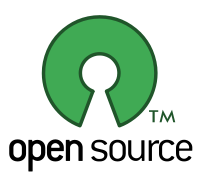
Lazerteq Security’s administrative staff have been having continued issues with the default applications provided with the Microsoft operating system they purchased and installed on their work stations, ranging from malware, viruses, software bugs and various usability issues.
I’ll be consulting with Lazerteq to assist in the move to Open Source software for as many applications as possible to alleviate some of these ongoing issues.
The first phase of this is an initial migration of core applications like web browsers, email clients and “office” applications, accumulating in the move to an open source Linux based operating system for their work stations.
If you’d like to know more about the benefits read on, or contact me for more information.
The benefits of switching to Open Source (taken from “Benefits of Open Source”, OLC):
- Security – Hacking attempts on servers are frequent, malware, trojans and viruses are commonplace and tools to help the hacker are readily available. No software is 100% immune from security vulnerabilities but the open source process itself delivers superior security performance. When a vulnerability is identified, it is often fixed in a matter of hours; proprietary software vendors sometimes take months to even announce the existence of a problem to its customers. This is one of the main benefits that should be carefully considered when investigating Open Source alternatives.
- Retain Control – The rights and freedoms of an open source licence gives businesses greater control over the tools they come to depend on. Unreasonable price increases, unacceptable licensing restrictions, forced upgrades are a thing of the past…
- Quality – Apart from proprietary vendor funded research, any independent reports you care to read which look at Open Source finds the quality of open source projects to be significantly better than proprietary software. The development model itself relies on constant peer review of the code and produces a highly modular design which makes it easier to read and fix. Releases tend to occur when the software is considered ready for use; not on a date set by a marketing department.
- Cost – Open source software is usually available at no cost and easily obtained as a download from the internet. Open source licences are written to allow you to use the software again and again with no mandatory per-seat or per-server costs. Future versions of the same software are also available at zero cost although you are not forced to upgrade just to receive support or to continue to be able to interoperate with your partners, customers or stakeholders.
- Standards – Open source software has largely defined the standards in use on the internet today so it’s no surprise to find that the same open standards are considered extremely important. Open standards allow products from different vendors to work together and also prevent business from getting “tied” to a single product from a single vendor. This is becoming increasingly important with regards to document storage and archival. The ODF (Open Document Format) is an OSI approved standard and allows any vendor, whether they are Open Source or proprietary, to use a common document format; meaning your files will always be readable without having to pay for the latest Office application upgrade for example.
- Flexibility – Open source software is transparent. If there’s something you want it to do you can either modify the product yourself or pay someone to do it for you. If you wish to, you are free to contribute your modifications back to the community so that the software continues to improve. Most Open Source licenses only require you to do this if you re-distribute your modified product to others.
- Support – As well as paying for professional support from companies like ours, access to good support is usually available for free via mailing lists, forums and IRC, if you have the technical knowledge and skills to assimilate it. The help is often provided by the same people that wrote the original code.